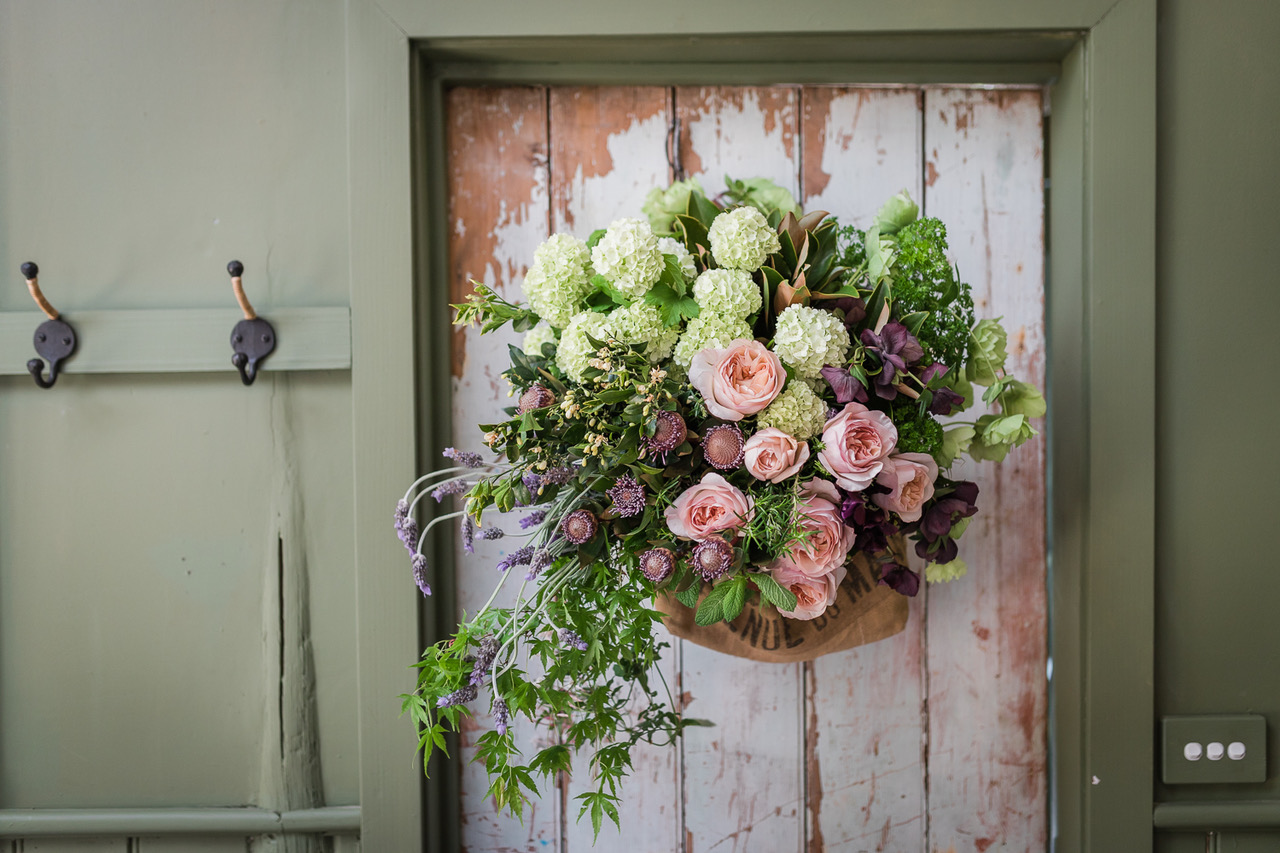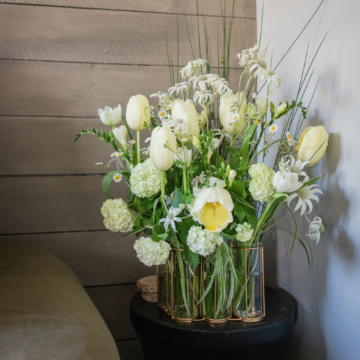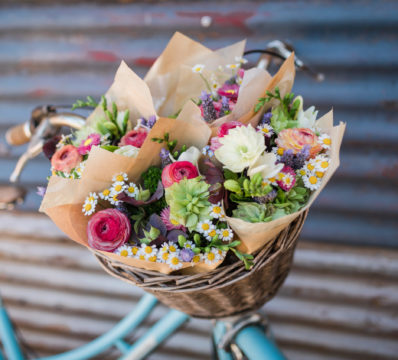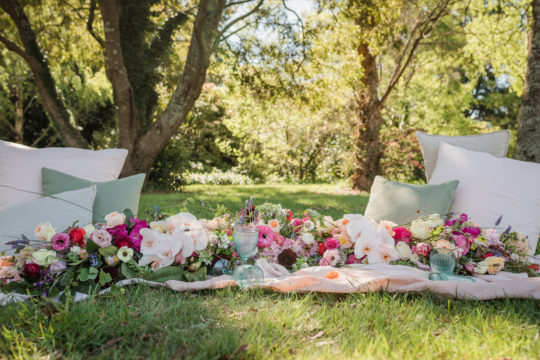Blog
Blooming Minds: How Flowers Foster Mental Well-being on World Mental Health Day

World Mental Health Day on October 10th is a global initiative that brings attention to the importance of mental health and well-being. While traditional approaches to mental health support include therapy and medication, there is growing recognition of the therapeutic benefits of nature and the outdoors. In this blog, we’ll explore the world of flowers and their profound impact on mental health, drawing insights from Sue Stuart-Smith’s book “A Well Gardened Mind” and Yvette Timmins’ “Feed Your Soul with Flowers: A Therapy in Bloom.” https://www.who.int/campaigns/world-mental-health-day
The Science of Flowers and Mental Health
Sue Stuart-Smith, a psychiatrist and psychotherapist, extensively discusses the relationship between gardening and mental health in her book “A Well Gardened Mind.” https://www.suestuartsmith.com/book She highlights the scientific evidence that supports the idea that gardening, which often involves tending to flowers, has therapeutic effects on mental well-being.
- Reduced Stress Levels: Research shows that spending time around flowers can reduce cortisol levels, the stress hormone. The act of nurturing plants and witnessing their growth can have a calming effect, alleviating symptoms of anxiety and depression.
- Enhanced Mood: Flowers are known to trigger positive emotions. The vibrant colours and pleasant fragrances they offer can elevate mood and create a sense of happiness and contentment.
- Improved Concentration: Engaging with nature, including flowers, can boost focus and concentration. It provides a mental break from the pressures of daily life, allowing the mind to reset and rejuvenate.

The Language of Flowers
Yvette Timmins, in her book “Feed Your Soul with Flowers: A Therapy in Bloom,” https://study.bloomcollege.com.au/Feed-Your-Soul-Flowers-Book explores the symbolic and emotional connections between humans and flowers. This connection, often referred to as the “language of flowers” or floriography, has a long history of influencing mental well-being.
- Emotional Expression: The practice of gifting flowers has been a way to express emotions for centuries. Receiving a bouquet can provide comfort and support during difficult times, fostering a sense of connection and emotional well-being.
- Mindful Engagement: Working with flowers, whether arranging them in a vase or cultivating them in a garden, encourages mindfulness. The process of selecting, arranging and appreciating their beauty can promote relaxation and self-reflection.

Additional Insights
While the insights from Stuart-Smith and Timmins provide valuable information, there are more intriguing facts about flowers and mental health worth noting:
1. Aromatherapy:
Aromatherapy is a holistic healing practice that utilises the scents of essential oils extracted from various plant sources, including flowers, to enhance physical and emotional well-being. Here’s how it works:
- Lavender: Lavender essential oil is widely recognised for its calming properties. Inhaling the scent of lavender can reduce anxiety and improve sleep quality. It’s often used to alleviate symptoms of stress and promote relaxation.
- Rose: Rose essential oil has a gentle, soothing aroma that can uplift the spirits and reduce feelings of sadness and grief. It’s associated with love and self-care, making it an excellent choice for emotional well-being.
- Chamomile: Chamomile essential oil is known for its anti-anxiety effects. It can promote relaxation, ease tension and even help with insomnia. It’s a popular choice for those seeking emotional balance.
Aromatherapy can be experienced through diffusers, massage oils, or even by adding a few drops of essential oil to a warm bath. The inhalation of these floral scents can have a direct impact on our mood and mental state, making it a valuable tool for managing stress and improving mental health.

2. Seasonal Affective Disorder (SAD):
Seasonal Affective Disorder (SAD) is a type of depression that occurs at a specific time of year, typically during the autumn and winter months when daylight hours are shorter. Flowers and plants can play a role in managing SAD:
- Light and Colour: Flowers, especially those with vibrant colours, can provide a visual boost during the dark winter months. Bright and colourful flowers can stimulate positive emotions and counteract the feelings of sadness and lethargy associated with SAD.
- Indoor Plants: Bringing indoor plants and flowers into your living space can create a sense of vitality and connection to nature, even when outdoor conditions are less favorable. Caring for these plants can be a fulfilling and mood-lifting activity.
- Biophilia: The concept of biophilia suggests that humans have an innate connection to nature, and being around plants and flowers can improve overall well-being. For those affected by SAD, having greenery and blooms indoors can help mitigate the symptoms of this condition.
https://www.sciencedirect.com/science/article/pii/S0160412019336347
3. Community Gardens:
Community gardens are shared spaces where individuals come together to cultivate plants and flowers collectively. These gardens offer numerous mental health benefits:
- Social Interaction: Participating in a community garden fosters social connections and a sense of belonging. Interacting with fellow gardeners can reduce feelings of isolation and loneliness, which are detrimental to mental health.
- Physical Activity: Gardening involves physical activity, which is known to boost mood and reduce symptoms of depression. It provides an opportunity for exercise and fresh air, both of which contribute to improved mental well-being.
- Sense of Purpose: Caring for plants and flowers in a communal garden gives individuals a sense of purpose and accomplishment. Watching the garden bloom and flourish can provide a profound sense of satisfaction and pride.
Community gardens often serve as therapeutic spaces where people from diverse backgrounds come together to bond over a shared love for gardening. These spaces not only beautify neighbourhoods but also nurture mental and emotional health within the community.
Incorporating these three additional insights into the broader context of flowers and mental health further underscores the diverse ways in which flowers contribute to our emotional and psychological well-being. Whether through the calming scents of essential oils, combating seasonal depression, or fostering community connections, flowers truly offer a multi-faceted approach to enhancing our mental health and quality of life.
On World Mental Health Day, it’s crucial to recognise that mental well-being can be nurtured through various means, and the beauty and tranquility of flowers play a significant role. From reducing stress and improving mood to fostering emotional expression and mindfulness, flowers offer a natural therapy that contributes to our overall mental health. As we celebrate this day, let us appreciate the simple yet profound impact that flowers have on our minds, and consider incorporating them into our lives for a healthier and happier future.
Get the BOOK – FEED YOUR SOUL WITH FLOWERS
